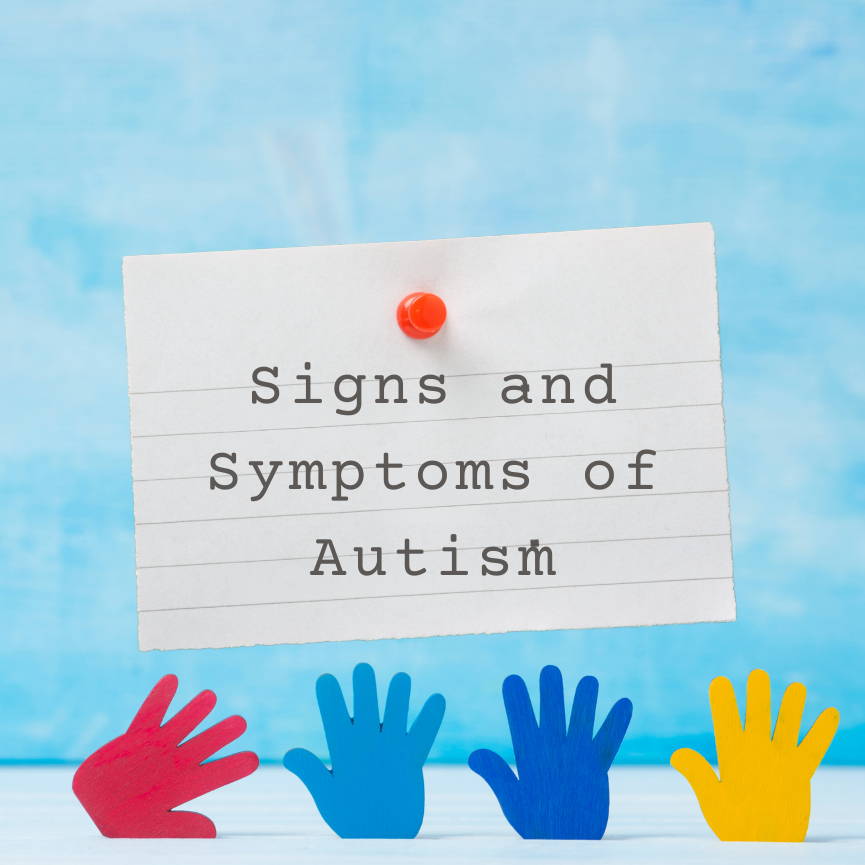
- May 23, 2024
- 7565 Views
- 0 Comments
Having a pure heart and being extremely sensitive is what autism is about. It concerns learning how to live in a vast, perplexing environment. It involves growing in different ways, at different rates, and by making distinct jumps.
Remember the time when your child was still undiagnosed? How bewildering, how confusing a time it was when you were not quite sure of what your child was going through, before being diagnosed with Autism? Here are a few terms that may be useful to others and make their journey through the opening lines easier.
Recognizing the early signs and symptoms of autism can significantly improve the effectiveness of early intervention strategies.
It is important to diagnose autism spectrum disorder (ASD), as without a diagnosis, this can make so many areas of life difficult, distressing, and bewildering for the autistic child and the parents as well. Once a condition is identified, we parents can all learn how to assist our kids in receiving the appropriate care at the appropriate time. It is possible to get the appropriate services and make accommodations in the educational environment.
ASD is a developmental disability brought on by variations in the brain, as we are all aware of by this point. People with ASD frequently don't stand out from other people in terms of their appearance, but they may communicate, interact, conduct themselves, and learn in ways that are different from the majority of other people.
People with ASD may be exceptionally gifted or severely challenged in their capacity for learning, thinking, and problem-solving. ASD sufferers can vary greatly in how much assistance they require in their daily lives.
Autistic disorder, pervasive developmental disorder not otherwise specified (PDD-NOS), and Asperger syndrome are now all included in a diagnosis of ASD, in addition to numerous other conditions that were formerly classified individually. These ailments are now collectively referred to as autism spectrum disorder.
Common early signs of Autism
The scope and seriousness of symptoms can differ greatly. Having trouble communicating, having trouble interacting with others, having obsessive interests, and engaging in repetitive behaviors are common signs.
Especially in their social and linguistic abilities, many infants with ASD have developmental deficits.
Autistic kids may experience symptoms that are:
- Behavioral: Poor eye contact, compulsive behavior, impulsivity, repetitive motions, self-harm, or a pattern of repeatedly repeating words or acts; inappropriate social interaction; and compulsive behavior
- Developmental: Learning disability or speech delay
- Cognitive: intense interest in a small number of items or difficulty focusing
- Psychological: Unaware of others' emotions or depression
- Also common: Anxiety, change in voice, sensitivity to sound
Early childhood is often when autism spectrum disorder first manifests. For a child to succeed in the long run, early evaluation and intervention are essential.
Children with ASD mature at varying speeds in many domains. While their ability to walk and move around is roughly the same as that of other children their age, they may have delays in their linguistic, social, and learning skills.
They might excel at putting puzzles together or figuring out technological issues, but they might struggle with social skills like talking to others or forming friends.
Early warning signs of Autism include:
- no social smiling by 6 months
- no one-word communication in 16 months
- no two-word phrases by 24 months
- by 12 months, no babbling, pointing, or expressive motions
- poor eye contact
- not showing items or sharing interests
- unusual attachment to one particular toy or object
- not responding to sounds, voices, or names
- loss of skills at any time
ASD begins before the age of 3 and the effects are long-lasting, although symptoms may improve over time.
From the first few months of life, some children with ASD display early signs of potential issues. Others might not experience symptoms for 24 months or more. Some ASD kids appear to develop normally up until the age of 18 to 24 months, at which point they cease learning new things or start losing the things they already know.
Studies have shown that one-third to half of parents of children with ASD noticed a problem before their child’s first birthday, and nearly 80%–90% saw problems by 24 months of age.
However, in every stage, early intervention and patience can go a long way toward ensuring development and progress, so always hold on to hope, because it is real!



Post Your Comment